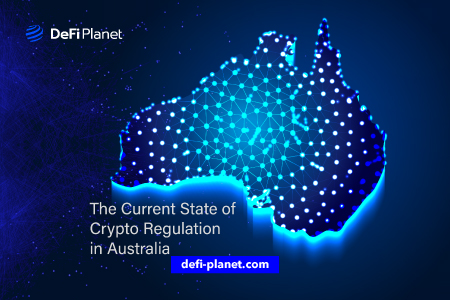Australia has, since 2021, joined the league of countries like the US in expanding crypto regulation, and this year just might usher in further implementation of regulatory guidelines and provisions for crypto-related operations in the country.
The past year generally witnessed a marked increase in crypto regulation, with finance regulatory bodies and law enforcement agencies like the United States SEC, FBI, DOJ, and the Treasury Department running the show.
This isn’t particularly surprising, especially in the wake of several crashes and an unprecedented surge in illicit activities in the industry, such as the $600M hack on Axie Infinity’s Ronin Blockchain in April, the Terra-Luna crash in May, which gulped about $60 billion of the total cryptocurrency market value; the June attack on Harmony’s Horizon bridge; Celsius going bankrupt in July; the infamous FTX collapse in November, and the most recent case being prosecuted this year — Bitzlato’s illicit and fraudulent activities to the tune of over $700 million.
Australia was also not spared from these issues — in November 2021, Australia-based crypto exchange ACX and its parent firm Blockchain Global went bankrupt, and investigations into the case later revealed that the exchange had misappropriated customer funds.
Thus, the Australian Government has deemed it fit to introduce legislation to legislate and improve on regulations tailored to suit cryptocurrency trends in 2023 in order to build investor confidence in the crypto sector, prevent illicit activities, and protect consumers of crypto services from experiencing financial losses, attributable to the carelessness of crypto platforms or exchanges like FTX.
Australia’s Present Cryptocurrency Regulatory Framework
While Australia’s financial system currently does not recognize digital assets or provide any specific crypto laws, it is noteworthy that cryptocurrencies and other digital assets that fall within the financial product or service category are regulated by the Australian Securities and Investments Commission (ASIC).
The ASIC has taken significant steps to regulate crypto assets in recent times. In October 2022, it announced the issuance of interim stop orders preventing Holon Investments Australia Limited (Holon) from offering or distributing three cryptocurrency investment funds to retail investors for having non-compliant target market determinations (TMDs) in violation of their design and distribution obligations. The investment funds had invested in cryptocurrencies such as bitcoin (BTC), ether (ETH), and filecoin (FIL).
Also, in October 2022, the ASIC stated its commitment to “take targeted action against unlicensed conduct and misleading promotion of crypto-asset financial products that could harm consumers… this is a key priority for ASIC” while declaring its charges against BPS Financial for alleged false representations and unlicensed conduct through the crypto-asset, Qoin.
Asides from the ASIC, some other existing laws that have been confirmed to apply to businesses in Australia’s crypto sector include:
- The Australian Financial Services Licence (AFSL) required by crypto assets that are or form part of an investment product or exchange-traded product based on current regulations;
- The Anti-Money Laundering and Counter-Terrorism Financing (AML/CTF) regime, given the rising use of cryptocurrency by criminal and terrorist groups;
- The National Credit Consumer Protection Act (NCCPA) 2009, which provides licences needed for cryptocurrency lending platforms to operate;
- The Australian Consumer Law (ACL), couched in Schedule 2 of the Competition and Consumer Act 2010; and
- The 1999 Electronic Transactions Act, which is meant to regulate self-executing electronic transactions powered by blockchain or distributed ledger technology.
Prospective Regulatory Guidelines
It has already been established that Australia’s government understands the need for proper regulations tailored to suit the current developments in the crypto industry. To this effect, the Senate in Australia set up a “Select Committee on Australia as a Technology and Financial Centre” in October 2021, headed by Senator Andrew Bragg.
The Bragg Report
The Bragg Report sets out 12 recommendations for regulatory reform in Australia’s crypto sector. The recommendations essentially show a move from the current approach of using existing regulations to monitor activities in the cryptocurrency space, to the prospects of a more particular approach.
Thus, if approved, the recommendations of the Bragg report would introduce new laws and regulations for digital currency exchanges, even recognizing Decentralized Autonomous Organisations (DAOs) and decentralized entities.
The Bragg Bill
While the report’s recommendations were still waiting to be adopted, Senator Bragg pushed for more legislative progress on the matter by introducing a private member bill titled “Digital Assets (Market Regulation) Bill 2022” before the Parliament in September 2022.
The draft Bill, which is likely to set the tone for crypto’s new regulations in Australia, proposes to:
- Implement two main recommendations in the Bragg Report — the licensing of digital asset exchanges and digital asset custody services;
- Introduce parameters around the issue of stablecoins against the backdrop of the collapse of popular US stablecoin UST (Terra); and
- Facilitate the entrance of digital currencies into the Australian market, starting with the digital yuan.
Thus, the Bill recommends the licensing of digital asset exchanges (like FTX and ACX), proposes new rules for stablecoins, and seeks to introduce the digital yuan.
Stablecoins
Stablecoins are a type of cryptocurrency that aims to provide stability by being pegged to a fiat currency. However, as the awful “Terra Luna” crash has shown, they carry certain risks.
The infamous May 2022 Terra crash occurred because the price of TerraUSD, a stablecoin pegged to the US dollar, split from its USD peg, and the panic sales that ensued ultimately caused the price to plummet to $0.02.
Given how this crash wiped out about AUD 85 billion, the bill seeks to introduce clear measures that would prevent similar meltdowns in the Australian market. Thus, it proposes that in addition to licensing requirements, stablecoin issuers would need to hold reserves equal to the face value of their stablecoins on issue. For example, if Paxos issues $5 billion worth of its stablecoin BUSD, it would also need to hold $5 billion Australian dollars in reserve.
The monitoring of stablecoins is so high on the bill’s agenda to the extent that it also recommends that stablecoin issuers publish monthly updates on the amount of assets held in reserve and the stablecoins in circulation.
Digital Yuan
The bill proposes to introduce some of the world’s first regulations of central bank digital currencies (CBDCs), particularly China’s “digital yuan,” into the Australian crypto market.
It also recommends certain banks give information on things like the number of Australian businesses using the digital yuan and the amount of digital yuan held by Australian customers. The primary rationale for this requirement is to monitor the movement of the digital yuan for illegal transactions and allow statutory authorities to guarantee the safety of consumers’ funds.
The bill also seeks to specifically prohibit the mixing of customer funds and introduce new rules in relation to cybersecurity.
The consultation process for the bill was completed on 31st October 2022, and if passed, it would make Australia one of the first nations (besides China) to enable transactions using the digital yuan, provide more comprehensive regulations for the crypto sector, and further achieve the Bragg Report goal of Australia “becoming a leader in the digital assets space.”
What Lies Ahead for 2023?
Regardless of whether the Bragg Bill is passed, Australia’s crypto regulation is expected to undergo significant developments. In addition to the bill’s recommendations, other events, such as token mapping, are likely to take place this year.
In August 2022, Australia’s Treasury announced that it would focus more on token mapping, which involves identifying all the characteristics of digital assets and tokens in Australia, including their type, underlying codes, and other distinctive technological components, in a bid to understand how these digital assets should be regulated.
The Australian government, led by Anthony Albanese, has already initiated this “first-of-its-kind” token mapping exercise to determine which tokens or digital assets should be regulated by financial services laws.
Furthermore, in December 2022, Australia’s Treasury issued a consultation paper seeking feedback that would provide a framework for regulating crypto service providers. The paper, which accepts feedback until February 6, 2023, is expected to address various aspects of the crypto ecosystem, such as digital wallets, stablecoins, crypto assets, and central bank digital currencies (CBDCs).
The consultation paper will also include a framework for the licensing and regulation of crypto service providers as part of a “strategic plan for the payments system.”
The government would also look into the policy rationale for an Australian CBDC by investigating the economic, legal, regulatory, and technological considerations, and this is expected to be completed by mid-2023.
It is a well-known fact that the blockchain space is rapidly evolving, and the Australian government and regulators will need to keep up with its pace of development to make effective regulatory moves in the industry.
In Conclusion,
- Despite the recent turbulence in the cryptocurrency markets, blockchain remains an innovative technology. Australia is seeking to gain a competitive edge in the crypto market, specifically in crypto regulations, to protect its jurisdiction’s crypto users from fraudulent hacks, loss of funds, and other illicit activities.
- While it is uncertain whether Senator Bragg’s Bill will be passed in its current form, the Australian government has demonstrated a clear interest in collaborating with stakeholders to develop a regulatory framework that better suits the country’s crypto industry. Therefore, Australian businesses and consumers can anticipate some form of crypto regulation to be introduced soon.
- It is worth noting that the Australian government continuously evaluates its policies on digital assets, and there is a potential for future developments in cryptocurrency regulation within the country. The growth of the crypto industry in Australia is reliant on how well the regulators create a regulatory environment that balances consumer protection and innovation in the sector.
If you would like to read more articles like this, visit DeFi Planet and follow us on Twitter, LinkedIn, Facebook, and Instagram.
“Take control of your crypto portfolio with MARKETS PRO, DeFi Planet’s suite of analytics tools.”





















